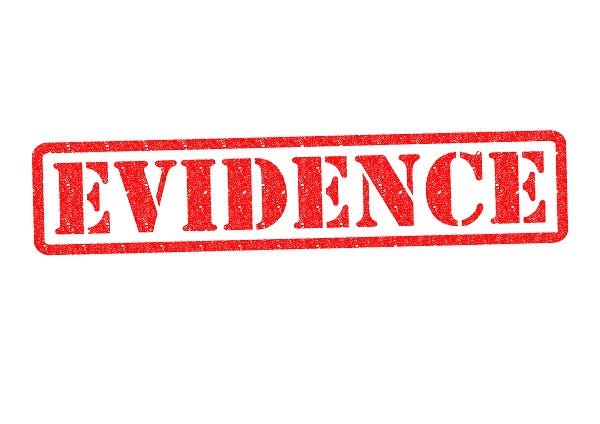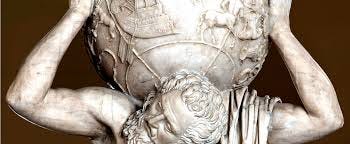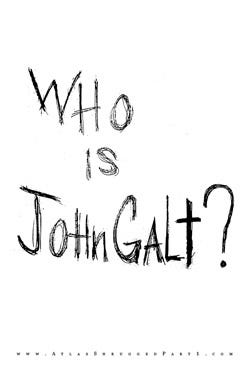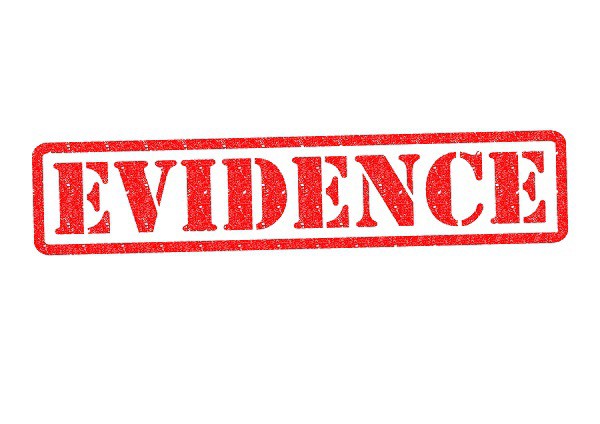The code-is-law movement is a pernicious attack on freedom. There is no definitive means to assess truth through a computer program. The strength of law comes in its flexibility — the ability of judges and juries to weigh evidence and find a balance based on proof. Those seeking to subvert justice will tell you that proof can be obtained through mere digital data, that evidence through a simple key is sufficient.

Such a movement, one of code as law, is all Bitcoin is in opposition to.
It is all anyone who believes in freedom should be opposed to. It is something that childish hackers and those aligned to states who oppose freedom seek to promote. It is not simply leaving choice to a mere algorithm, but in taking away the power from the existing system, they seek to weaken the underlying tenets of law and the structure of society. They call it by many names, some say it is anarcho-capitalism, others do not care for the label, but just seek disorder and chaos. Yet with all, the aim is very clear: to undermine the nature of justice.
Gli Hecatommithi, published in 1565 by Geraldi Cinthio and the inspiration for Shakespeare in the creation of (the tragedy of) Othello, begins with the refrain:
There once lived in Venice a Moor, who was very valiant and of a handsome person; and having given proofs in war of great skill and prudence, he was highly esteemed by the Signoria of the Republic, who in rewarding deeds of valor advanced the interests of the state…
It is an interesting piece and well worth the read, yet it also comes to the heart of the matter: what is proof?
Many will have you believe that signing a message with the digital key is itself proof and not mere evidence in the construction of a case. It is a fallacy I need to rebuke. It is an idea that is miasmic through its virulent and noxious constitution. Being of mephitic nature reminiscent of toads wallowing in the pond they defecate in with its septic rankness, it pollutes the minds it touches.
The Moor, Othello gave proof through deeds. Yet such is what some would seek to obfuscate. They seek to obscure the very meaning of proof for it eats at the heart of law.
Companies
When it comes to companies acting digitally, there cannot be a company signature, for a company does not act. It (the company) has human agents, directors, and officers, and they act for the company. They can sign, they can bind the entity, and they can be bound. Not a computer program, but people.
Digital signatures of files are based on data that must be securely stored to remain of evidential quality. In asserting that a digital signature is proof beyond a doubt, we remove the human element of law; it is at the heart of the attack on law and society that those seeking the code-is-law movement deploy to muddy the already turbid waters.
It is an attack that we can call to be of burden-shifting analysis. It is one designed to undermine the scrutiny of the complainant’s evidence in determining sufficiency. One key aspect of any requirement for evidence is a burden of proof. First, we must adduce whether a party has a duty to prove a disputed assertion or charge. It consists of a dual burden of put-forth suasion and the burden of production. Such is the evidentiary burden or onus probandi.
In such an analysis, we must first ask, who seeks to prove?
The burden of proof is due to one carrying the risk of non-persuasion. In a trial, the judge or jury when presented with the evidence will be convinced or not. Not because of a digital key but through the full weight of evidence.
In common-law trials, it is not the mere possession of a file that leads to one being found to have induced insufficient evidence to promote a burden of as proof may be required. A burden of proof denotes the duty of establishing the truth of operative facts surrounding the issue in question to a level where the preponderance of evidence supports the assertion or not. It remains a matter for courts and people, for juries and judges. Here lies the insidious nature of the attack upon law; yet law is not binary. We cannot make law binary, and code cannot be law in any fair society.
Pro opere et labore
For work and labour is the proof. Othello had given proof of his valour through action and deed. A signature issued through a digital file is at best a conditional or presumptive proof, that is, a fact that amounts to proof where no other fact amounts to disproof. It is not in itself more than mere evidence. In civil law, there is a term known as full proof, which is a proof by multiple witnesses or public instrument.
It is insufficient to require others to prove without reason. You may seek proof, and before investing money, I would warrant such a test, if it is the reason and base of your judgement. In seeking to determine the burden of proof, we must start with an analysis of the parties. Who is seeking proof? What are they seeking to prove, and who are they seeking against?

As a self case study, I will bring up the story of my qualifications. They started to be attacked, yet I had not gone to the press or sought publicity through them. Whilst I was out of reach for the media, some use such a way to attack my name. I did not seek to prove. Yet so is the point; why must I? Later, I approached the matter by bringing forward a selection of my degrees — not all, not even half, but enough to demonstrate the felicity of the act and the false nature of the attacks. Here lies one of the problems with proof of social media. The Internet as a commons suffers the tragedy of all open socialist systems. Without value, without price, nothing is free; and the cost is a burden that even Atlas would shrug from his shoulders in utter disgust.
So, for all the misinformed attacks on law, why would I bear the burden? Not as Hamlet did to consider the easy way out, but rather to take the burden of an oppressive is wrong in pangs of despised misplaced spurn. To take a calamity of a long life full of grunts in the waiting of unearned effort. To take action, and in doing so oppose the cowardice of conscious acquiescence to the mob and the rule of the common social group we cannot even see. For so is the cesspit of the unearned social attributions that we call social media.
Why not digital proof?
The insidious nature of code as law is the desire to bypass the institutions that have built up over the centuries. None of it will ever be achieved, yet it is at the heart of all the attacks on what Bitcoin is and conversely, on what they seek to create. You see, Bitcoin is not just an idle and unassociated key. It is not anonymous but pseudonymous. The distinction is important, it is the difference between a digital identity and the abyss of binary law enacted through code alone. So you ask, why is it so calamitous and repugnant to those who value truth and honour society?
It comes from the nature of trust.
Mere possession of a file is not evidence, nor can it be held to be anything but evidence of possession of a file.
It is an important point that must be stressed. Computers are not secure, and the average person will never get to the point where everything they do can be secured. There are ways to make security better and reduce the strain on an unknowing population who do not know how to maintain the security of digital files that lead to identification and evidence, but even then nothing is perfect. In a world where everything is digital and by those who seek the dystopia arising through code is law, we would see people wrongfully not only accused but framed.
More, the burden of proof lies on those seeking to adduce evidence. I don’t care for your belief. I don’t want your adoration, so I have nothing to prove to you unless I choose to. It is another important point to stress; the media seeking either to appoint a king or to cast one down is not seeking truth. In the world of click-bait media, the truth is roadkill after a lorry has passed. It is a world fighting for relevance and one that seeks to exist outside of truth, for truth is its enemy. The truth does not pay for advertising, and it does not allow retraction and commentary and social-media storms. The click-bait media consists of such things Bitcoin is not.
It seeks to force people to jump and prance and act upon the stage of its choosing. Yet, I choose to play my own game.
What is the right to privacy?
It is the right not to answer when others seek answers, to choose not to give to them. For, if it is not you who have been promised, then where is the right that you think you have? The nature of the social-media culture that has come through such a duplicitous and ensnaring yet deceptive and deceitful subversion of journalism and print has led people to believe that they have a right to seek answers, not truth where justice must be served, but in surreptitious and worm-like thrusts into the heart of truth.
By nature it is Machiavellian and in form perfidious, yet few see what it is and what it can become. The digital culture that some seek as a means to subvert the institutions that have come through slow determination is a rot in the core of a fruitful society.
It is important to ask what is being sought.
In seeking to surreptitiously alter the nature of thorough reporting and of truth, of moving the onus of a burden to those who do not need to provide evidence from those who seek to gain through the losses of others, we see a means of hiding under the rocks that becomes the norm. It allows those who seek to prey on the weak and the ignorant to hide behind the false veil of freedom that they call free contracting when they cover a face of fraud with a mask.
There is no solution in mere digital keys. Bitcoin aids in reducing the cost of doing business. When used correctly, it provides an evidentiary trail that can lower the cost of taking action in court, yet it does not replace the court with mere keys. Most importantly, it doesn’t shift the onus of who must provide evidence.
Something that many have forgotten is an important part of truth. If I was to seek to profit saying that I have multiple degrees when I do not, it is fraud. Yet, if I’m not seeking to profit from you, and I’m not seeking your approbation, you also have no right for proof. When I chose to hand over evidence of a few of my many degrees, I did so in a manner that was forced. If I choose not to discuss my studies in theology, and you are not a part of the church I was once with, you retain no right to probe. As difficult as it may seem to those brought up through the deception creeping into their ears through proof of social media, you do not have the right to choose what will and will not be private in another person’s life.
When I was an Elder of the Uniting Church and acted as a trustee of the church’s bank, those within the church had a right to parts of my past. They had a right to understand the theology I stood for and the beliefs I held. Yet the world doesn’t.
What some fail to see is what they are due.
If I was seeking to raise money selling myself as the creator of Bitcoin, those I sought direct investment with could ask me for evidence, if so is why they were investing. Conversely, if they were smart, they would not look for proof of the past but to what I could offer going forward. Such would be evidence of work, of papers, and of patents. It would entail reviewing code we plan to launch and those things we seek not to discuss within the organisation.
Or, I can choose to prove what I want how I want to whom I want. You see, certainty has a price. So does risk. It is funny how people fail to comprehend the value of information. Some, of course, see the value in attacking me for what I choose not to do. Yet they fail to see the value they add.
I don’t seek to garnish attention from those within the ‘crypto’ community. In fact, those who acted as steppingstones to get Bitcoin where it is for the most part have served their purpose and will sink slowly into the mire. They have supported the weight of taking Bitcoin to where it is needed to be even as they opposed it. And in doing so, many bore the weight of my steps as I pushed them down into the morass of the quagmire they have created as they split away from Bitcoin seeking to make something else. It is fine; their use has passed. And the ooze is slowly covering all they were. It may not seem this way to many, but so is the nature of Bitcoin; it is, as some have called it, a truth machine, and in time all truth will come out that needs to.
So what is proof?
No, it is not as you’ve been told. Evidence is not possession of a key. It is evidence of possession of a key and no more. Imagine if it was all that was required. If evidence could be adduced from the mere possession of a key, then all that would be required in attacking the cases against Silk Road and ones such as Ross Ulbricht is for another to use a key. If we are arguing that the possession or use of a key is a singular proof, then ones such as Ross Ulbricht would be proven to be falsely accused if another was to spend using one of the respective keys. If one that had been attributed to an account was used elsewhere, then suddenly he would be innocent.
Ross Ulbricht used the alias Dread Pirate Roberts. Just as in the story from which the moniker originated, another claimed the handle and ID of Dread Pirate Roberts, reopening the Silk Road website one month after the original site was seized by US law enforcement, and Ross claimed another had held them before him. If a mere contrivance was sufficient to avoid law, he would be out now.

Yet, it is not how law works. It is not how truth works.
But it is what some want. The average person will never be as secure as they should be, for the cost of obtaining such level of security exceeds what most people are willing to pay. Yet, if merely finding a file containing a private key is a means to get someone off of a crime or conversely to frame someone falsely for a crime they did not commit, then we no longer have a foundation of law. It is what some seek.
Some fail to see the change that is happening. It’s slow, and it will take decades, yet it’s going to occur. The promise of blockchain, Bitcoin, lies in the truth. Not the subverted version that they sell. Not sidechains and Lightning and methodologies that allow people to create many sets of books and ledgers, but one truth, one source of immutable evidence.
What you are going to see in the next decade is the creation of thousands of pieces of intellectual property. Software and code and more patents than many countries own. Such is my legacy. Not caring what you think or even allowing you to understand me fully but creation as its own reward.
It may be droll, yet I find it a little whimsical that as others seek to attack my “reputation” within the "community,” I converse with lawyers, bankers, and business people… And they such as the lawyers “get Bitcoin” when I explain it.
They get what Bitcoin actually means.


